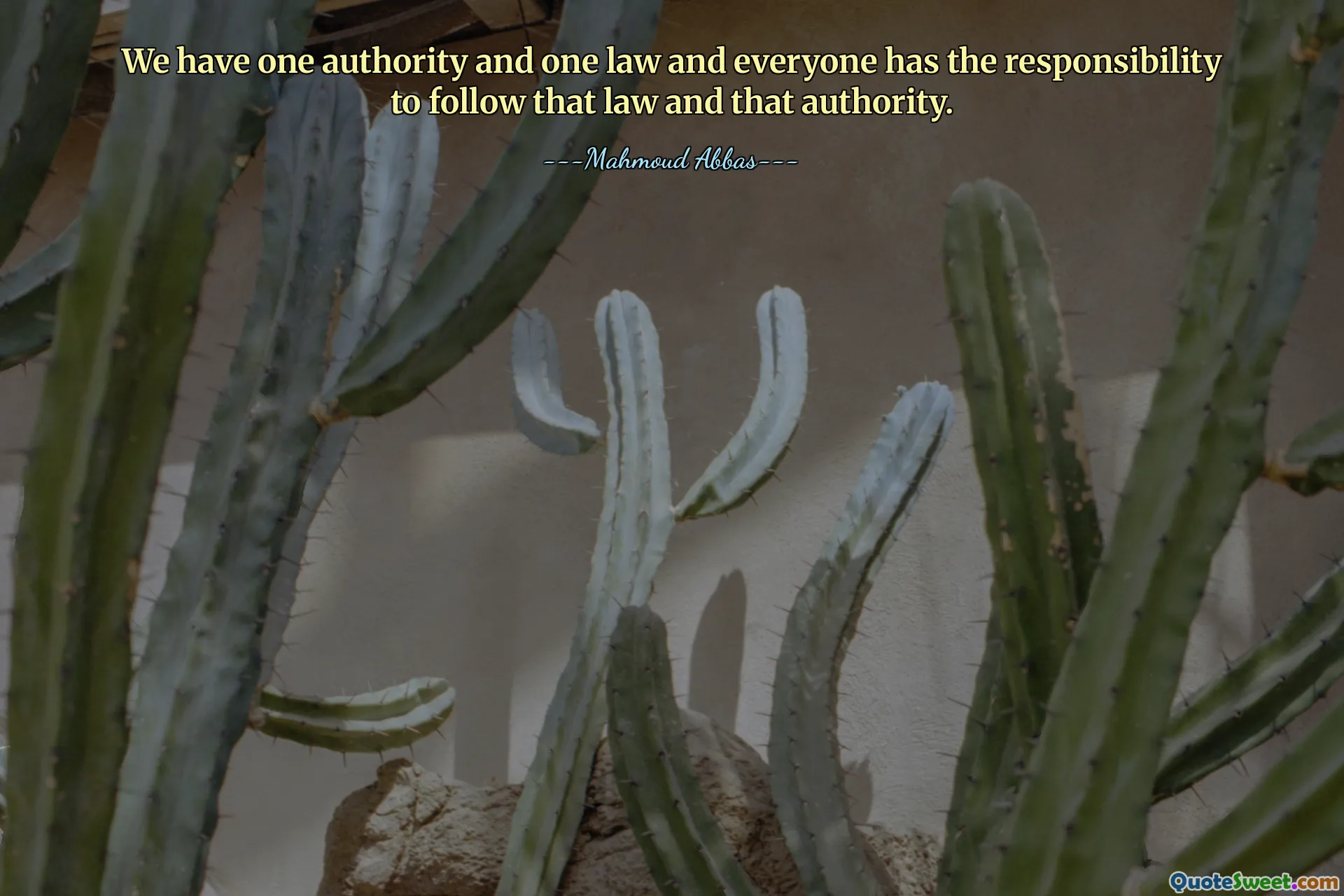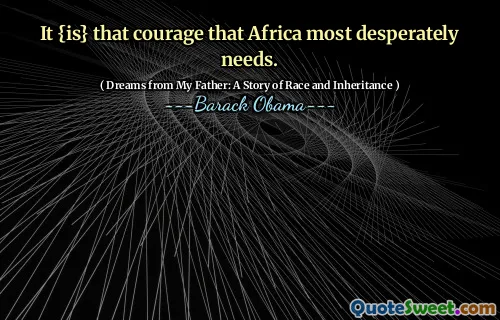
We have one authority and one law and everyone has the responsibility to follow that law and that authority.
This quote emphasizes the fundamental principle of unity and the rule of law within a society. When a nation or community establishes a single authority and enforces a unified legal framework, it creates a cohesive structure that aims to ensure fairness, order, and stability. The emphasis on everyone's responsibility to follow the law underscores the importance of individual accountability in maintaining societal harmony. In democratic societies, this concept fosters trust in institutions and promotes social cohesion, as citizens recognize their role not just as subjects of authority but as active participants in upholding the rule of law.
Furthermore, this idea can be extended to understand the significance of legitimacy and fairness in governance. When authority is transparent, just, and universally accepted, obedience stems not just from fear but from a shared understanding of the law's legitimacy. This mutual respect between the governed and the governing creates a resilient legal and social order.
On a broader scale, the quote highlights the interdependency between law and authority in shaping a civilized society. It suggests that without a common authority and law, chaos can ensue, and individual freedoms may diminish. Conversely, the rule of law can serve as a foundation for peace, development, and equality, provided that every individual acknowledges their responsibility to adhere to it.
In essence, societal progress depends on recognizing a single, legitimate authority and law in tandem, along with the collective responsibility of everyone to uphold it. This balance between authority, laws, and personal duty is crucial for sustainable social development and the maintenance of justice.










